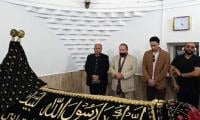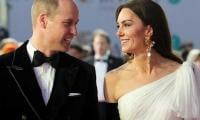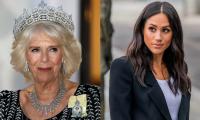Islamabad diary
Zardari and cohorts gave us democratic continuity and we all went wild and said what a wonderful thing it was. Pakistan had turned a corner and the future was bright. The Sharifs are giving us more of this continuity and with Gen Raheel Sharif’s announcement that he will stick to the rules, the sofa warriors who are democracy’s self-appointed custodians – just as there is another class of enlightened souls who are custodians of Islam – celebrate this as a triumph of democracy, and the demise of incipient Bonapartism.
I am not a veteran of all of democracy’s wars but I have seen a goodly number in my time. I grew up in a political household where the mantra, in the time of the self-appointed field marshal, was that all of Pakistan’s ills stemmed from the lack of elections. Once elections were held the resulting flowering of democracy would take care of everything and as a nation we would march, in joyous step, towards the Promised Land…its lights beaming from the distant hills.
Well, a military dictator trundled along and no sooner was ensconced in power before he smashed some choice items of sacred china: undoing One Unit at a stroke and restoring West Pakistan’s four provinces, and declaring without ifs and buts that elections would be held on the basis of one man/woman-one vote. This was the leading demand of the anti-Ayub agitation which the merry dictator – who liked his drink of an evening and often of an afternoon too, and whose roving eye never stopped roving – granted.
General elections were held, the first in Pakistan’s history, but paradise was not attained. Instead the seeds of anarchy were sown. India exploited our utter inability to manage the outcome of that election…and the country was cut in half.
The army of course was in command. So the ultimate responsibility of that outcome rests on the shoulders of the merry dictator, he of the roving eye who like emperors of old would spend his evening hours in the warm glow of genial company. But sharp-eyed politicians, whipping up a frenzy of self-serving patriotism, also had a hand in the making of that disaster.
Bhutto said he would pick up the pieces and he did. At Simla he was at his best and got Indira Gandhi to agree to an honourable peace. Pakistan’s face was not rubbed in the dust, as it well might have been with someone less sure in the driving seat. He gave the country a constitution which endures to this day despite two longish spells of military rule. In his more enthusiastic moments he liked wearing a Mao cap and playing at being a revolutionary leader.
His tenure should have ensured the strengthening of democracy. What it brought was just the opposite: reactionary forces sharpening their knives and bringing their pent-up fury onto the streets when questions were raised about the conduct of the 1977 elections. Sensing its opportunity, the army stepped in and what was supposed to be a 90-day interruption turned into an eleven-year nightmare.
During this time Pakistan got its fill of Islam, for Gen Zia, hunting for excuses and desperate for legitimacy, brought out that oldest of Pakistan’s music scores – Islam – and played it for all it was worth. To his good luck, and Pakistan’s lasting misfortune, Afghan communists could not manage their Saur Revolution.
Speaking the idiom of Lenin and Stalin, they fought among themselves and opened the floodgates of civil war.
The Soviet leadership was old, many leading lights of the politburo teetering on the brink of dotage. Not having read their Afghan history, and misjudging the situation, they sent in an army to pacify restive Afghanistan. (The CIA would have done it better. To oust Mossadegh in Tehran in 1953, the CIA made do with one operative, Kermit Roosevelt, and ten million dollars.)
This was Zia’s opportunity. From international pariah he became instant darling of the West, as another general, Musharraf, was to profit from a similar transformation many years later. Before the Soviet intervention the Americans could not have cared less about Afghanistan. Once it happened they were quick to seize the opportunity to turn Afghanistan into a graveyard of Soviet ambitions. In that venture which gave the world its first taste of ‘jihad’ we were the foot-soldiers, the Saudis and the CIA the paymasters.
This was the external setting of Zia’s rule. Internally, those opposed to his rule subscribed to a simple slogan: democracy’s restoration would solve all of Pakistan’s problems.
The time came when Zia had his appointment with the heavens and democracy was restored. This should have been a moment of renewal. It quickly turned into an extended war of competing corruptions: democratic corruption as exemplified by the People’s Party and Zia-remnant looting as symbolised by the military-sponsored rise of the Pakistan Muslim League. There had been looting in military eras past. Democratic looting broke all previous records.
The Zardaris owned one Bambino Cinema in Karachi and in Nawabshah they were reasonable landlords. The Sharifs owned one factory, Ittefaq, and that too had been taken over by Bhutto. The present prosperity of the Zardari clan and the rise and rise of the Sharifs… is this a tribute to their business acumen or to the open and hidden wonders of Pakistani democracy?
Ayub’s children became brilliant businessmen and industrialists in their father’s Decade of Development. Zia’s progeny have not done badly for themselves. Gen Akhtar Abdur Rehman was the self-proclaimed father of the Afghan ‘jihad’. His children, my friends incidentally, have also proved their mettle as industrialists. But khaki-coloured brilliance in the business and industrial fields is nothing compared to the business successes of Pakistani democracy.
Democracy was under a cloud because of Gen Raheel Sharif. He was no threat to democracy but his popularity was. It weighed on the minds of politicians, ruling and others, and gave rise to nameless fears. At public functions where everyone was present the focus was on him, people lining up for handshakes and selfies.
Politicians especially from the ruling PML-N muttered darkly about his latent ambitions. Now that he has proclaimed his lame-duck status they can heave a sigh of relief. The shadow over them has dissipated. Zardari was right when he said that you are here for three years while we are here forever. When Gen Raheel hands over his baton it is the politicians who will have the last laugh.
Now the Sharifs can build their orange railway lines and flyovers in peace. Hand it to them, they have mastered the tricks of the electoral art. The Islamabad-Lahore motorway was their ticket to immortality in the 1990s, the one and only achievement they could flaunt before a dazed populace. The Lahore metro-bus got them the 2013 elections. They are digging up the whole of central, historical Lahore because they want their orange line to be in place for the 2018 elections. And there is no one to oppose them.
So we can rejoice. The custodians can blow their bugles: democracy has been made safe once more. But two doubts persist. Why does the Pakistani variant of democracy mean prosperity only for the rich? Despite voting rights, why does it mean the continued impoverishment of the masses?
Email: bhagwal63@gmail.com
A representational image showing residents walking at a wholesale market in Karachi. — AFP/FileOnce again there is...
A representational image showing late Pakistani human rights activist and Supreme Court lawyer Asma Jahangir. —...
A representational image showing a security personnel sanding guard beside a ship carrying containers at Gwadar port....
A health worker administers polio vaccine drops to a child during a door-to-door polio vaccination campaign in Lahore,...
Armed militants of the banned Tehreek-e-Taliban Pakistan pose for a photograph in Orakzai Agency. —...
An aeroplane of the national flag carrier of Pakistan is seen in this file photo. — AFPWhile Pakistan considers...







